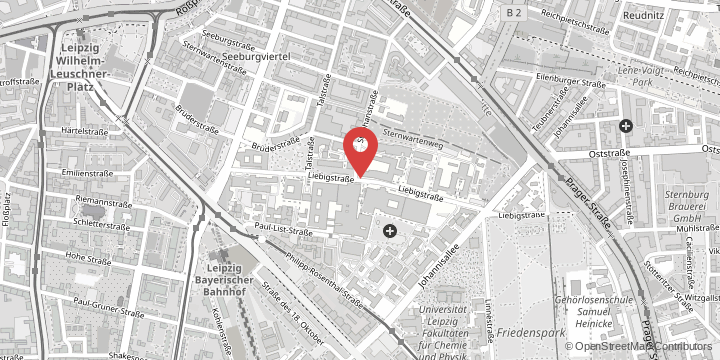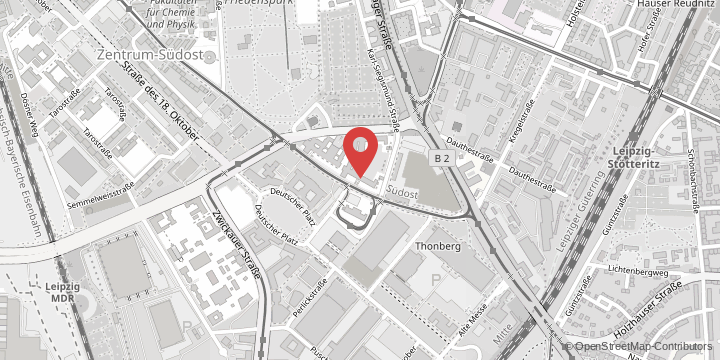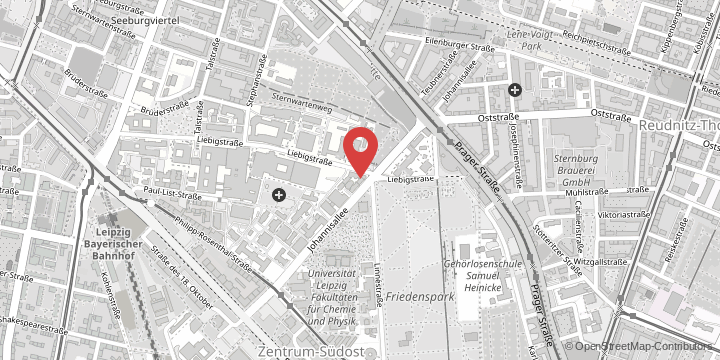With the “Wissenschaft trifft Wirtschaft” (Science Meets Business) and “Wissenschaft trifft Gesellschaft” (Science Meets Society) programmes, we promote cooperation between our researchers and stakeholders from business and society in order to strengthen knowledge and technology transfer. Funding of up to 15,000 euros can cover the University’s costs incurred in the cooperation project.
Science Meets...
The transfer of academic knowledge to business, politics, culture and civil society is one of the central tasks of our university. With the programme “Science Meets…” , Leipzig University would like to support students, teaching staff and researchers in transfer projects with non-university partners and is making a total of €15,000 available for this purpose in 2025.
Call 2025
Conditions
- Researchers and students of the university can apply for the funds, students need the formal support of a member of the university with a doctorate. Team applications are possible. Applications from the faculty of medicine will not be considered due to funding opportunities available there.
- The funding can be used both as seed funding for a larger project and to finance a single, self-contained project. It is also possible to use the funds for an additional, clearly definable transfer activity to an existing research project.
- A maximum of €15,000 can be applied for in each case. The funds can be used for both personnel and material resources at Leipzig University. They will be made available in 2025 and must also be spent in that year.
Procedure
Applications with the following documents can be submitted by e-mail until 6 December 2024:
- Project description incl. objectives, time and cost plan (max. 3 pages),
- Informal declaration of cooperation from the external partner,
- Curriculum vitae of the applicants (as well as a list of relevant publications, if applicable).
The projects are selected by a jury chaired by the Vice-Rector for Excellence Development: Research and Transfer.
Funded projects
Project: Practical history lessons: Children experience history in a lively and tangible way
Project director: Professor Dietrich Raue (Egyptian Museum)
Project partner: Anhaltischer Förderverein für Naturkunde und Geschichte e. V. (Pfaffendorf)
Project: Biodiversity in Leipzig – A regional utilisation and potential analysis of the interactive web application LifeGate
Project director: Dr Martin Freiberg (Botanical Garden)
Project partner: Natural History Museum Leipzig
Project: Reduction of Listeria monocytogenes on stainless steel surfaces using nanocoating (ListRed)
Project directors: Dr Martin Köthe and Professor Peggy Braun (Institute of Food Hygiene)
Project partner: nanopool GmbH (Schwalbach, Saarland)
Project: Strengthening the social integration of international students in Leipzig through the development of the digital platform Hallo.City
Project director: Professor Utz Dornberger (International SEPT Program, Institute of Service and Relationship Management)
Project partner: Deutsch-Spanische Freundschaft e.V. and wunderbar - Raum für Interdisziplinäre Zukunftsforschung (Leipzig)
Project: Children experience history: Understanding through hearing, seeing, touching and doing it yourself
Project director: Professor Dietrich Raue (Egyptian Museum)
Project partner: Anhaltischer Förderverein für Naturkunde und Geschichte e. V. (Pfaffendorf)
Project: Ways of organisational development in the cultural sector
Project director: Dr Ringo Rösener and Dr Uta Karstein (Institute for the Study of Culture)
Project partner: Netzwerk für Kinder- und Jugendarbeit e.V. (Chemnitz)
Project: Discover the zoo world through a child’s eyes
Project director: Professor Katja Liebal (Leipzig Lab, Institute of Biology)
Project partner: Zoo Leipzig
Project: Process evaluation and development of a software module for Leipzig University Hospital to optimise patient management in sports and physiotherapeutic care during inpatient hospitalisation as well as in the transition to follow-up treatment
Project director: Professor Gregor Hovemann (Institute of Sport Psychology and Physical Education)
Project partner: science on field GmbH (Leipzig)
Project: The LSI.J language test tablet for young people: Establishing long-term R&D cooperation in product development and collaborative research
Project director: Professor Christian Glück (Institute of Special and Inclusive Education)
Project partner: Berufbildungswerk Leipzig gGmbH
Project: Development of a voice-based telephone assistant with the help of artificial intelligence
Project director: Professor Rainer Alt (Information Systems Institute, IWI)
Project partner: we-do.ai GmbH (Leipzig)






























































